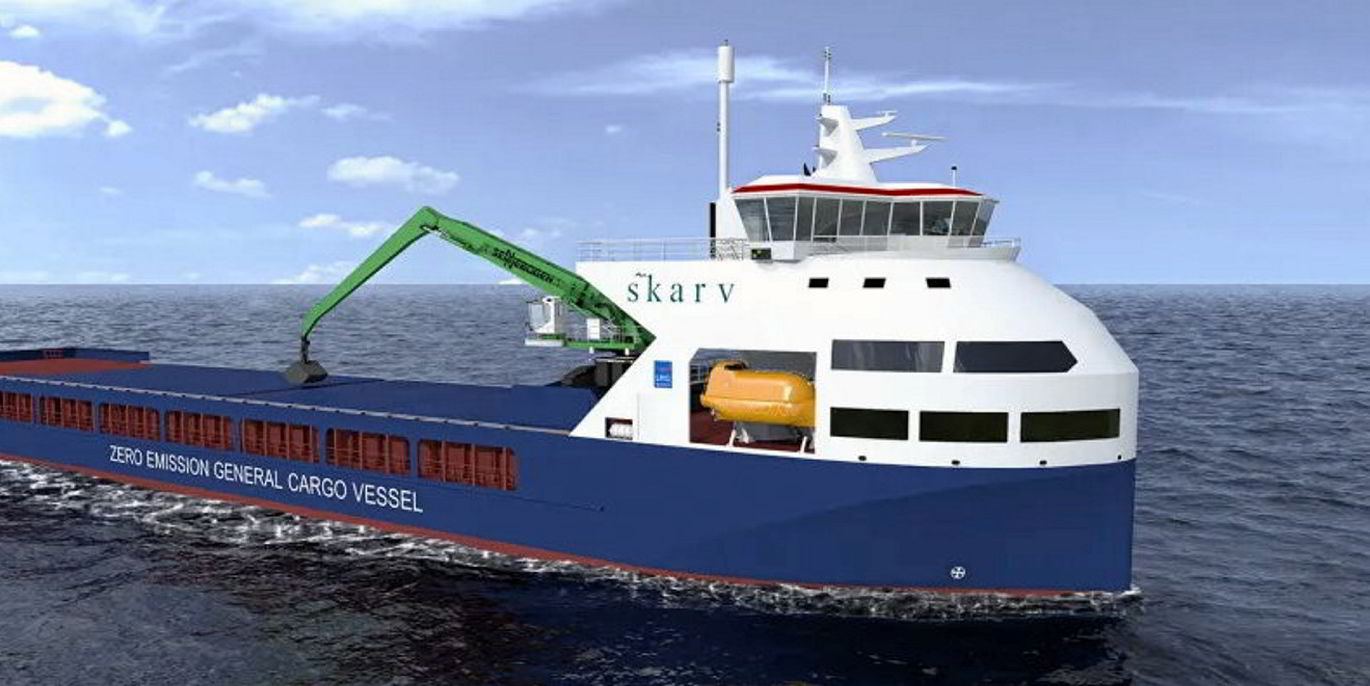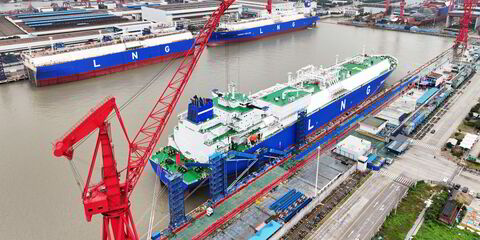Norwegian start-up Skarv Shipping Solutions has received a financial boost in its efforts to operate zero-emission cargo vessels along the coast.
The joint venture between Bergen shipowners Grieg Maritime Group and Peak Group has been awarded a grant of NOK 130m ($12.2m) for the first three ammonia-fuelled ships by the government environmental fund Enova.
The 4,000-dwt ships will also feature batteries, rotor sails and energy-efficient hull design.
They will be used in short-haul shipping from northern Norway south to the Oslo Fjord.
Propulsion is based on a four-stroke engine, probably supplied by Finland’s Wartsila.
“Enova’s support is invaluable in developing our plan to reduce CO2 emissions in Norway’s coastal maritime sector,” Skarv chief executive Jan Oivind Svardal said.
“We have poured considerable resources into crafting a shipping and logistics concept that we are absolutely positive can be taken to market to ensure the utmost safety, efficiency and dependability.”
He added that constant dialogue with customers has been maintained throughout the process.
“Now, with Enova’s decision, we are eager to move forward and accomplish our next goals: firm commercial agreements with our clients and initiating the contracting and construction of ships,” Svardal said.
The start-up was launched last summer by Grieg and Peak, a general cargo and project specialist shipowner.
The venture was planning four new ships of about 5,000 dwt at that time, priced at between $15m and $20m each.
Shipbuilding experience
Grieg and Peak can both draw on experience of building ships at yards in Europe, Turkey and the Far East.
Projects currently under development could result in six to eight ships in total.
Nils Kristian Nakstad, CEO of Enova, said: “Enova supports those who go in front. Skarv Shipping Solutions has developed an exciting and innovative project that can mean a lot for the development of our shortsea shipping.”
Norway’s climate & environment minister, Espen Barth Eide, added: “The next big step in transforming shipping is the transition to zero-emission fuel.
“This ground-breaking project will lead the way and show the way for short-haul shipping to adopt a wide range of zero-emission solutions, including the use of green ammonia.”(Copyright)




